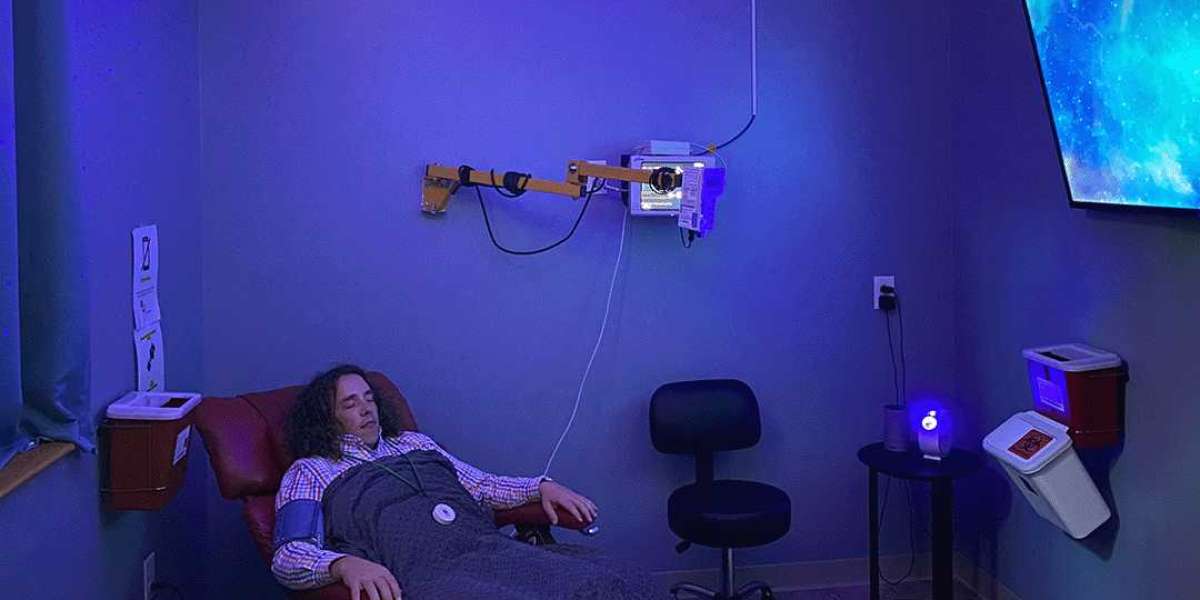Inception:
Ketamine therapy holds significant importance in the realm of mental health treatment. This cutting-edge strategy has demonstrated astounding effectiveness in reducing the signs and symptoms of PTSD, anxiety, and other mental health conditions.
People who have had difficulty finding successful treatments have hope because of its potential to bring rapid relief, particularly in cases of illnesses that are resistant to therapy. Ongoing research continues to unveil its broader applications and refine its protocols to make it a promising avenue for improving mental well-being and quality of life.
Historical Stigma Surrounding Ketamine
Ketamine, originally developed as an anesthetic in the 1960s, gained notoriety due to its recreational use as a party drug and its association with the club scene. You can consult thesis writing services in USA to get an assignment on how historical stigma has cast a shadow over its legitimate medical applications, including ketamine therapy. Many people still associate ketamine with recreational drug use that hinders its acceptance as a valuable therapeutic tool.
Lack of Public Awareness
One major reason for ketamine therapy's understatement is the limited public awareness of its existence and benefits. Custom auditing writing service often report that ketamine therapy is not as well recognized to the general public as more traditional mental health therapies like talk therapy or medication. Its stigma may be lessened and its acceptance may rise if more people are made aware of it and its potential.
High Costs and Limited Accessibility
Ketamine therapy can be costly and is not always covered by insurance, especially when given in a therapeutic environment. Those who could benefit from it the most frequently cannot afford it because of its high price. Its undervalued position is also influenced by the dearth of skilled ketamine therapy providers, as many potential patients do not have access to this medication.
Research and Clinical Trials
The development of medical knowledge and treatment alternatives depends heavily on research and clinical trials. These meticulous scientific studies offer vital information on the security, efficacy, and potential hazards connected with novel medicines and interventions. They contribute to improving patient outcomes, validating medical advancements, and educating evidence-based medical practices. In order for healthcare providers to give their patients with the finest care possible, research and clinical trials are essential in the development of novel medicines.
Regulatory Hurdles
The regulations that restrict the use of ketamine in therapy stem from its classification as a Schedule III controlled substance in the United States and analogous restrictions in other countries. These regulatory constraints may impede healthcare providers from offering ketamine therapy, thereby limiting its accessibility to individuals in need.
Integration into Traditional Mental Health Care
Ketamine therapy represents a distinct departure from traditional approaches to mental healthcare. Its integration into existing mental healthcare systems can be challenging as it requires a shift in mindset from both patients and healthcare professionals alike. Resistance to change within the healthcare industry can contribute to the understated status of ketamine therapy.
Ethical Concerns
The potential abuse or overuse of ketamine therapy raises ethical questions, particularly in situations when it might not be the best course of action. To maintain its acceptance and success, ketamine therapy must be delivered properly and ethically.
Conclusion:
Ketamine therapy is a potential and effective treatment option for a number of mental health disorders. Due to historical stigma, low public awareness, expensive expenses, ongoing research, regulatory barriers, integration difficulties, and ethical considerations, it is still underutilized despite its potential.
Ketamine therapy should be responsibly included into current systems of mental healthcare, and initiatives to raise awareness, reduce stigma, improve accessibility, and save costs should also be taken. As knowledge and research in the field of mental health treatment expand, ketamine therapy may become a more popular and widely used approach.








